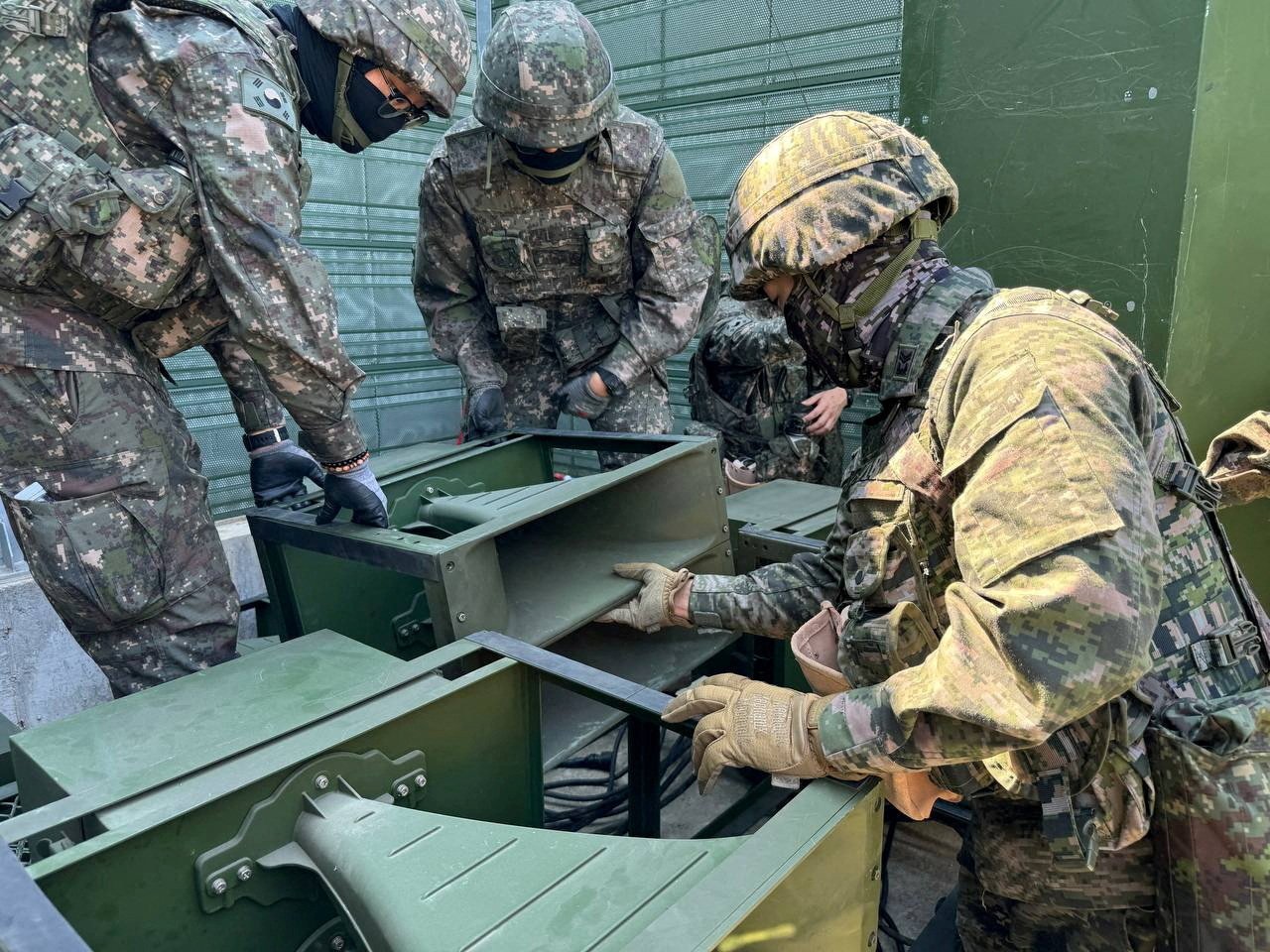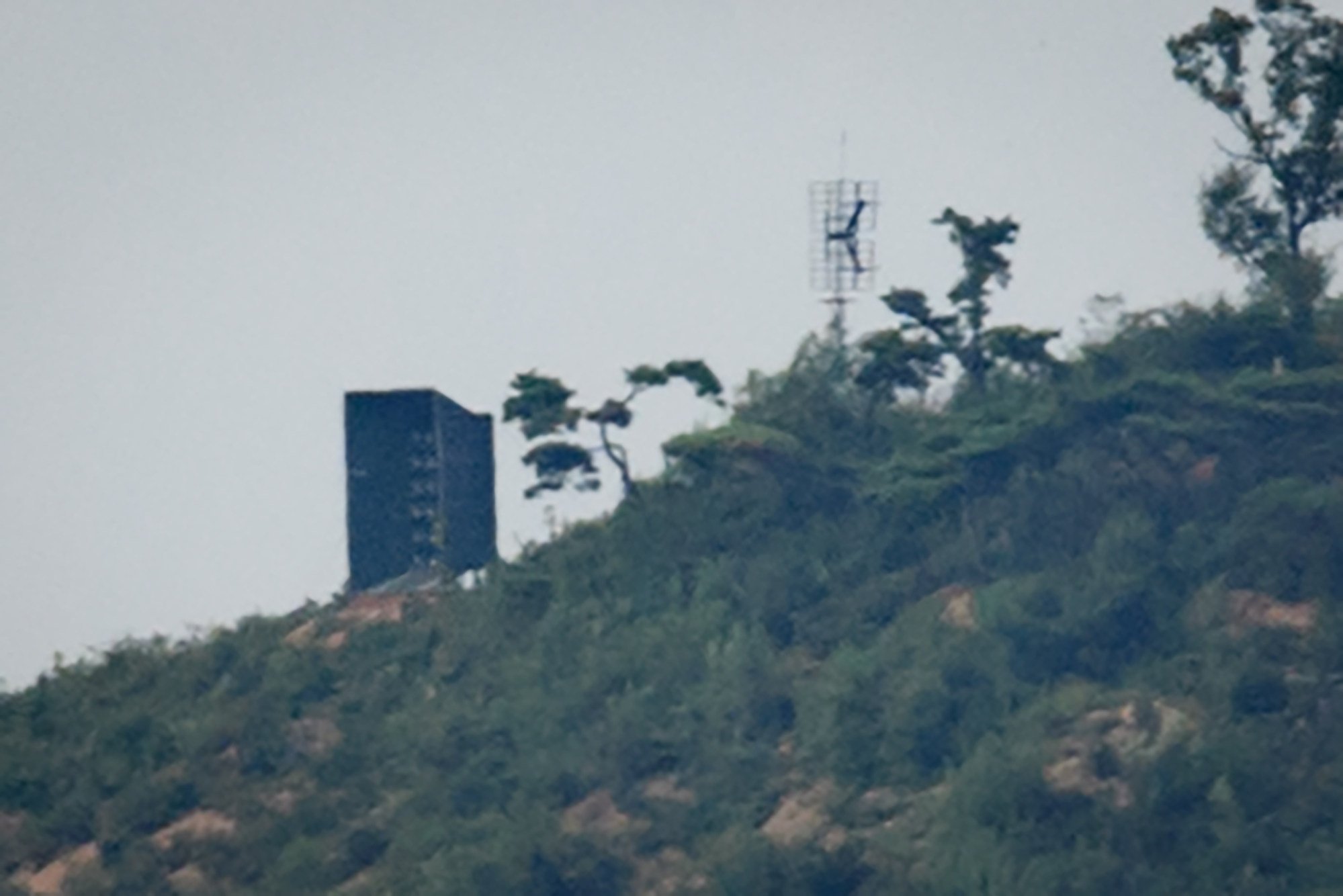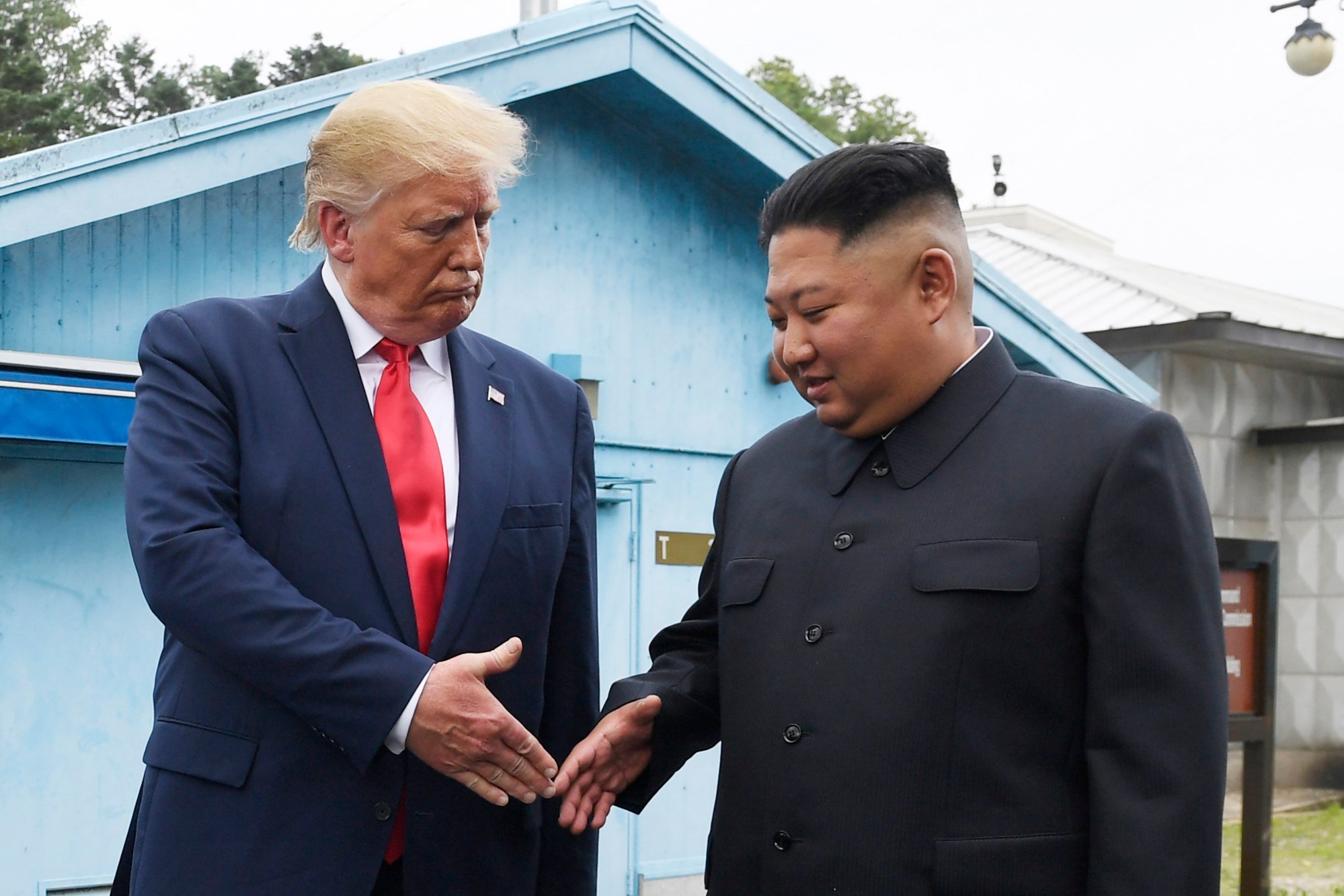End to inter-Korea ‘loudspeaker war’?
Pyongyang’s cessation of loudspeaker broadcasts does not signal a shift in its indifferent policy towards ties with Seoul, analysts say

Silence has returned to the inter-Korean border for the first time in a year, as Pyongyang ceased loudspeaker broadcasts in a reciprocal action hours after Seoul powered down its propaganda volume on the front line.
Observers warn that while the halt may help build an atmosphere conducive to easing tensions, it does not yet signal a shift in the North’s broader indifferent policy towards reconciliation with its neighbour or the United States.
“There have been no areas today where North Korea’s loudspeaker broadcasts towards the South were heard,” a South Korean Joint Chiefs of Staff official said on Thursday.
According to the official, North Korea’s loudspeakers went quiet after 11pm on Wednesday. “In the past, these broadcasts were often audible in the early morning, but none were heard this morning.”
He warned, however, that the stoppage might only be temporary. “We are closely monitoring the North for its next moves.”
Hong Min, a senior researcher at the Korea Institute for National Unification, cautioned against reading too much into the development.
“North Korea is reacting proportionally to the South’s prior halt to its borderline loudspeaker broadcasts. The North sees no need to continue the war of loudspeakers, which has a disproportionately greater psychological impact on its own soldiers and border residents than on South Koreans,” Hong told This Week in Asia.

“It remains to be seen whether this signals a softening of its stance or a genuine policy shift towards dialogue,” he added.
Following President Lee Jae-myung’s directive, South Korea’s military stopped its loudspeaker broadcasts along the border on Wednesday, nearly a year after resuming them amid mounting tensions between Seoul and Pyongyang.
The broadcasts had included anti-Pyongyang propaganda mixed with K-pop music.
The presidential office cited both a desire to ease tensions and reduce the suffering of residents in border areas affected by noise from the North’s broadcasts. These included sirens, banging percussion, howling animals such as wolves, nails screeching on a blackboard, and eerie high-pitched laughter reminiscent of a ghost story.
Lee also “strongly” urged South Korean activists – including North Korean defectors – not to send anti-Pyongyang leaflets across the border.
In June last year, under then president Yoon Suk-yeol, Seoul resumed loudspeaker broadcasts for the first time in six years, in retaliation against the North launching trash-carrying balloons into the South.
Pyongyang’s balloons were themselves a response to the Yoon government allowing leaflet launches.
Yoon’s predecessor, liberal president Moon Jae-in, had banned such balloon launches as part of a 2018 inter-Korean peace agreement signed with North Korean leader Kim Jong-un.
Under Lee, the South now hopes to revive a supplementary military agreement that bans hostile activities near the border, including military exercises, loudspeaker broadcasts and propaganda leaflet campaigns.
“South Korea is likely to propose the restoration of the September 19, 2018, military agreement. Depending on how the North responds, we may learn whether it is softening its stance towards the South,” Hong said.
Emeritus professor Koh Yu-hwan, a specialist on North Korean affairs at Dongguk University, agreed that the broadcast stoppage could help create a more favourable atmosphere for rebuilding trust.
“However, it will still be difficult for the two Koreas to resume reconciliation and exchanges,” he said.
He noted that the North had redefined its relationship with the South as one between two “hostile” states, moving away from the notion of special ties between two halves of a divided nation yearning for reunification.
North Korea in the past pursued a high-stakes strategy by holding its trump card of nuclear weapons to seek economic aid and diplomatic recognition from the US.

But its summits with US President Donald Trump in 2018 and 2019, in Singapore and Hanoi respectively, yielded little outcome.
“North Korea’s strategic calculus has shifted towards aligning with a new axis of Russia, China, Iran, and itself,” Koh said.
“The North has also made significant progress in strengthening its nuclear arsenal, which makes a return to denuclearisation talks even more unlikely,” he said.
For now, the North was more focused on military build-up and internal stability, paying less attention to inter-Korean relations, Koh added.
“Its ties with China aren’t as warm, largely due to fears that Chinese culture – tainted by Western market capitalism – could influence its people and elites,” he said.
“In contrast, it sees Russia as a less culturally threatening partner and a potential source of badly needed resources like minerals and food,” Koh added.
Given these calculations, Koh said it was not surprising that Pyongyang had ignored friendly gestures from the second Trump administration.
White House spokeswoman Karoline Leavitt said on Wednesday that Trump was “receptive” to corresponding with Kim and wanted to see the progress made during their first summit in 2018, where they agreed to pursue the “complete denuclearisation” of the Korean peninsula and establish new bilateral relations.
However, the deal collapsed amid mutual distrust and the North’s continued push to develop its nuclear and missile capabilities.
Leavitt made her comments after NK News reported – citing an “informed high-level source” – that North Korean diplomats in New York had refused to accept a letter from Trump intended to reopen communication between Washington and Pyongyang.
But analysts see little chance that Kim would respond positively.
“The collapse of the Hanoi summit was a great insult to Kim in the eyes of his people,” Koh said, noting that Kim had travelled by train for days to attend the much-hyped meeting.
“There’s no reason for Kim to respond positively to another overture from a leader he views as unpredictable,” he said.
Hong echoed that sentiment.
“Trump’s summits and letters were seen by Pyongyang as tools for his domestic political gain. The North sees them as adding insult to injury,” Hong said.
“Kim won’t budge unless Washington openly declares a policy shift” by lifting sanctions and moving towards normalising ties with the North, he added.